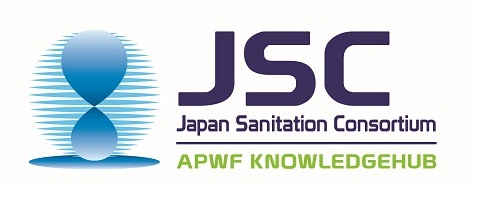
Welcome
TO THE WATER KNOWLEDGE
HUB FOR SANITATION
HUB FOR SANITATION
> for the improvement of sanitation
conditions in the Asia-Pacific region
conditions in the Asia-Pacific region
TOP MENU
Frequently Asked Questions
What is a KnowledgeHub? A KnowledgeHub is a center of excellence committed to improving water security in the Asia-Pacific region by promoting knowledge sharing and championing feasible solutions for its priority water topic. There is actually not one KnowledgeHub but seventeen KnowledgeHubs with different priority water topics. Together, they constitute the Asia-Pacific Water Forum (APWF)’s network of regional water knowledge hubs. The hubs work to collect information, generate and share knowledge and develop capacity by connecting people to feasible solutions and help them adapting these solutions to their local conditions.
What is the Asia-Pacific Water Forum (APWF) and why the need for a network? Created in 2006, the Asia-Pacific Water Forum (APWF) is an independent, not-for-profit, nonpartisan, and nonpolitical network dedicated to improving sustainable water management by championing best practices, boosting investments, building capacity, and enhancing cooperation throughout the Asia-Pacific region. Despite many local or national success stories across the region, however, the need for better knowledge sharing and knowledge generation remains acute. To connect people to knowledge and feasible solutions, and help them adapt these solutions to their local conditions requires knowledge networks. The Knowledge Hubs were created to answer these needs.
JSC is a newly established organization, what is its background? Although JSC was established in 2009, JSC incorporates five member organizations that for most of them have been created more than 40 years ago, at a time when Japan was experiencing severe sanitation issues and took drastic measures to solve them. JSC’s member organizations have developed high expertise in sanitation - including night soil/sludge management, decentralized and centralized wastewater treatment system management, human resource development - and also regularly collaborated in international activities with the Japan International Cooperation Agency (JICA).
What is off-site and on-site sanitation? Off-site refers to the wastewater that is collected and transported outside the house or building plot with the wastewater of other houses/buildings to a wastewater treatment system for purification (sewerage system), whereas on-site refers to the wastewater collected and treated in a wastewater treatment facility (e.g. septic tank or johkasou) located in the house/building plot.
Why JSC is a consortium? Like in many other countries, on-site and off-site sanitation are managed by different ministries in Japan. Two of the main ministries in charge of sanitation are respectively the Ministry of the Environment (MOE) and the Ministry of Land, Infrastructure, Transport and Tourism (MLIT). For that reason and to comprehensively cover sanitation, a consortium had to be created, gathering organizations that play a central role in the regulation and management of on-site and off-site sanitation in Japan.
Is JSC selling Japanese technology? As a KnowledgeHub, one of JSC’s goals is to gather information on any available technology with good potential and success stories that could be suitable for, let us say, communities, mayors, decision-makers anywhere in the region looking for a good system to implement, suited to their needs and local characteristics. However, JSC’s role is not to sell technology or make profit with a particular organization, but to fairly advise for the diffusion of systems that are the most suited to improve the health and well-being of the people and communities they serve.